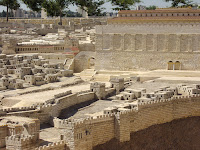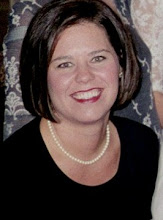Thank goodness for Tuesday morning off. This gave me a little time for catching up on my blog and typing up my lecture notes while I can still decipher them!
In the afternoon we visited a synagogue inside a hospital which contains famous Chagall stained glass windows. What amazing stories told in pictures and colors. There are twelve of them - one for each of the twelve tribes of Israel. Below are snapshots of a few, and then a video clip of all of them...



Ever have occasions where you feel like you're passing through alternate universes? The trip to this synagogue was a bit like that - we boarded the bus, drove from East Jerusalem to West, were dropped off at a shopping mall, which we walked through to get to the hospital that's connected to it (very strange to see patients in wheelchairs and hospital gowns in the mall!), down a winding hospital hallway, then up the elevator to a reception area outside the synagogue, and then finally inside. And we left the way we came in...what a surreal hour and a half!
Our next stop was to the Shrine of the Book, a museum dedicated to articles found at Qumran. Outside the museum was a large scale model of the ancient city of Jerusalem, including a rendering of the Temple.
We weren't allowed to take photos inside, but I cheated and sneaked a couple pics without flash...
This is looking up at a display of the Dead Sea Scroll of Isaiah.
The Aleppo Codex, written in Tiberias, 10th c.
Tonight we had a Jewish speaker who discussed with us Jewish perspectives on Jerusalem and the state of Israel. Of course the level of complexity is high, and he was quite fascinating to hear. Our speaker was adamant that Israel is not in religious conflict, but that the conflict is a national one with strong religious overtones. Yet the view of many is that the project of Israel is to be a Jewish state, so incorporating Palestinians (in their view) defeats the purpose of the Jewish state. He also said, though, that occupying another people (the Palestinians) is good for neither party, corroding the moral fiber of society.
Whatever the views or goals, I personally have struggled with the things I have seen and learned about how the Muslims and Christians are treated - containment via concrete walls topped with razor wire and electric fences (which our speaker preferred to call a "separation barrier"), restricting water supply to Gaza and the West Bank, denying passage in and/or out of Gaza, controlling even what kinds of food and humanitarian aid can be transported in... isolation and oppression... calling this difficult circumstances is an understatement!
One comment from our speaker continues to stick in my mind: "bad peace is better than a good war." Maybe we should be careful what we label as peace.








No comments:
Post a Comment